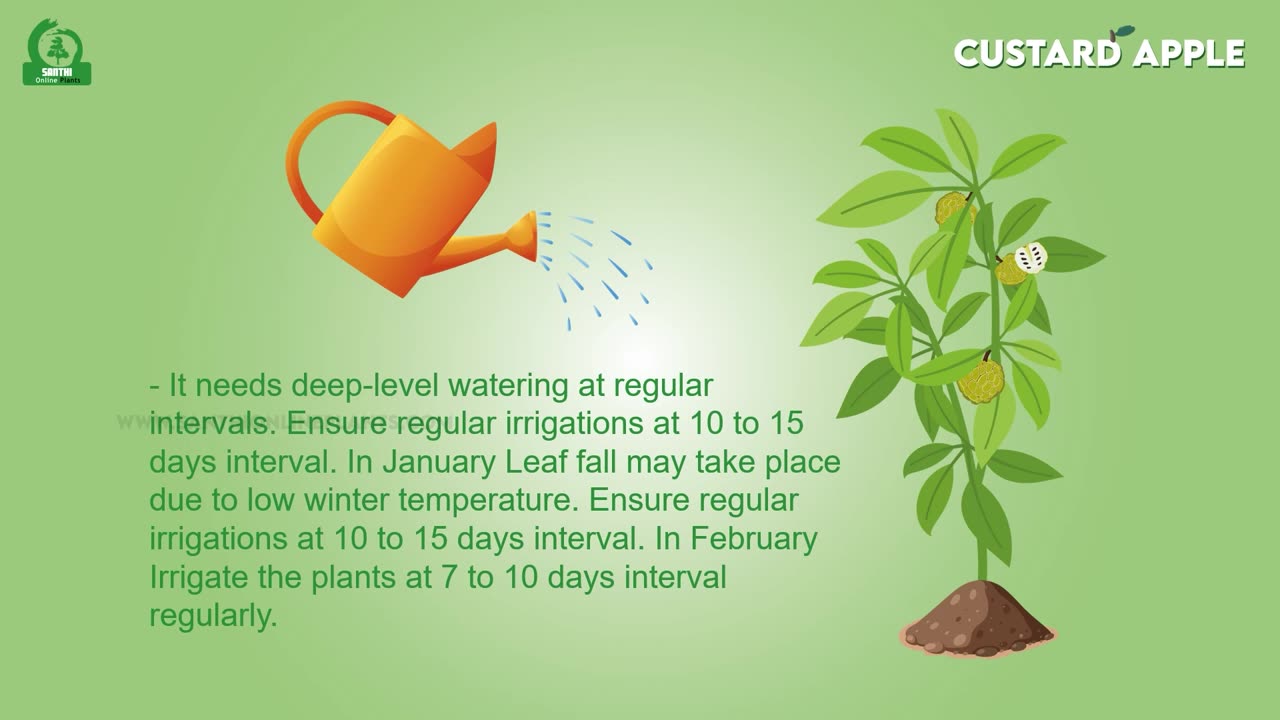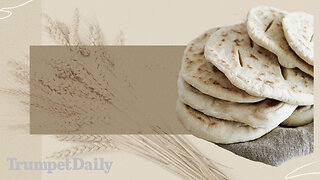Premium Only Content

CUSTARD APPLE
https://www.santhionlineplants.com
CUSTARD APPLE
The custard apple is also known as Seethapazham. It is a very sensitive fruit and aggregate fruit-bearing plant. The fruit has high medicinal value.
CUSTARD APPLE COMMON NAME: Sugar Apple, Seethapazham, Sitapal.
CUSTARD APPLE PLANT
The plant is a semi-evergreen tree and climacteric fruit plants can’t tolerate frost, especially young and fruit-bearing plants. Sitapal plants need to grow well in wind-free, frost-free, and humid places.
CUSTARD APPLE TREE
The custard apple tree is woody, and brown and produces numerous branches. It can thrive up to 8 to 12 feet tall. These plants can grow in the garden or outdoor areas.
CUSTARD APPLE FLOWER
Custard apple plants produce flowers on the emerging shoot and 1 to 2-year-old wood. This flower is fragrant, long and slender, and light green to pale yellow with purple spots. During spring to summer, flowers bloom in a hot dry climate, and fruit sets in high humidity.
CUSTARD APPLE LEAF
The leaves are glabrous, leathery, dark green to wooly green, and have smooth margins. Leaf has good medicinal properties it helps treat diabetes and digestion problems.
Annona reticulata
Annona reticulate is the scientific name of the custard apple plant it belongs to the Annonaceae family. It is under the category of the tree, fruit plant, and outdoor plant
CUSTARD APPLE FRUIT
Fruit are irregular in shape, green in color, multi-segmented, and have white flesh pulp. To bear fruit in 3 to 4 years from August to November. This fruit is also known as sitapal and it is a sweet, creamy, tasty, and edible fruit.
SOIL
Flourish on any type of soil but is ideal for the deep black, well-draining soil with highly rich organic content.
SUNLIGHT
It requires adequate direct sunlight for at least 6 to 8 hours per day. Summer keeps the plant in a green shade net.
WATERING REQUIREMENT
It required more water to keep the soil damp and again water the plant when the top 1-inch of soil feel dry. In winter, to reduce water consumption.
RANKING OR TILLING
Tilling is used to loosen up your soil before applying fertilizer and provide good aeration.
FERTILIZER APPLICATION
Apply any organic fertilizer like cow manure, blood meal, citrus fertilizer, and vermicompost in early spring once every 3 months until the tree begins to bear fruit. Develop plant growth, supply nutrients to plants, and boost tree tolerance to heat and cold.
TRANSPLANTING
Once seedlings are mature they can be transplanted into the garden or a slightly larger pot. It was good for root development, good aeration, and fruit production.
PRUNING
The pruned plant is bushy and maintains a low height because the tall plant is unstable in the pot. To remove the dry, affected, and dead branches and encourage plant growth.
PEST AND DISEASE
Due to improper management practices, pests like aphids and mealybugs are attacked. It prevents plant growth and reduces fruit bearing.
CONTROL
Spray neem oil with liquid soap once a week to kill and control pests and diseases. Take 1 ml of neem oil and 1 ml of liquid soap to mix in 1 liter of water and shake well. It makes plants healthy and increases fruit production.
CUSTARD APPLE BENEFITS
Custard apple fruit is highly rich in vitamins, minerals, and fibers.
Potential uses for custard apples are skin, hair, cancer, diabetes, and digestion problems.
Leaf extract has strong anti-microbial properties; it helps to reduce bacteria, fungi, and viruses.
PRECAUTION
Pregnant women should consult their doctor before eating custard apple fruit.
https://www.santhionlineplants.com
-
 2:14:50
2:14:50
We Like Shooting
1 day ago $8.93 earnedWe Like Shooting 606 (Gun Podcast)
56.2K5 -
 1:00:41
1:00:41
Donald Trump Jr.
15 hours agoMake Main St Great Again, Interviews with Alex Marlow & John Phillips | TRIGGERED Ep.233
188K55 -
 1:45:23
1:45:23
megimu32
11 hours agoON THE SUBJECT: 2008 Called.. It Wants Its Chaos Back!
68.4K20 -
 1:01:53
1:01:53
BonginoReport
13 hours agoPolitical Violence on the Rise in America - Nightly Scroll w/Hayley Caronia (Ep.26) - 04/14/2025
161K104 -
 1:32:42
1:32:42
BlackDiamondGunsandGear
7 hours agoThey Don’t want you to Purchase 2A Related Products?
53.9K4 -
 2:53:36
2:53:36
Joe Pags
11 hours agoThe Joe Pags Show 4-14-25
111K -
 56:14
56:14
Sarah Westall
11 hours agoGlobal Agenda: Starve Small Business of Funds w/ Bruce De Torres
92.2K24 -
 2:17:29
2:17:29
2 MIKES LIVE
14 hours ago2 MIKES LIVE #205 with guest Nick Adams!
67.1K -
 54:38
54:38
LFA TV
17 hours agoThe Bread of Life | TRUMPET DAILY 4.14.25 7PM
66.7K16 -
 37:52
37:52
Kimberly Guilfoyle
13 hours agoThe Trump Effect, Plus More Scandals for Leticia James, Live with Roger Stone | Ep213
84.7K28